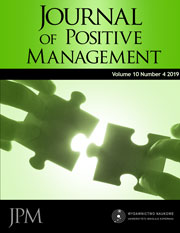THE ROLE OF LOGISTICS SERVICE PROVIDERS IN ENHANCING CORPORATE ENVIRONOMENTAL RESPONSIBILITY IN SUPPLY CHAINS
DOI:
https://doi.org/10.12775/JPM.2019.018Keywords
corporate environmental responsibility, outsourcing, transport, CO2 emission, chemical industryAbstract
Purpose: The purpose of this paper is to evaluate the role of logistics service providers (LSPs) in environmental performance improvement of transport processes in chemical supply chains.
Methodology: Lessons learnt are derived from the Interreg Central Europe Project ChemMultimodal, in which 59 companies in Central Europe (including 5 in Poland) tested transport modal shifts. The author presented 5 case studies of transport practices developed by chemical companies operating in Poland. Each case study is based on in-depth and detailed examination of a particular transport process using the ChemMultimodal toolbox.
Findings: The role of LSPs as architects of transport processes as well as integrators of transport modes and connections is crucial for rising environmental effects in chemical supply chains. As a result of collaborative outsourcing, the potential of CO2 emissions reduction by app. 60% is really significant in transport management of chemical products.
Originality/value: An in-depth analysis based on case studies of chemical companies sheds light on the value delivered by integrating LSPs into corporate environmental responsibility in supply chains. Conclusions drawn for the significance of environmental impacts of multimodal transport in chemical supply chains can be a good reference point for logistics managers in diverse industries.
Keywords: corporate environmental responsibility, outsourcing, transport, CO2 emission, chemical industry
Paper type: Research paper
References
Bask, A., Rajahonka, M. (2017), “The role of environmental sustainability in the freight transport mode choice: A systematic literature review with focus on the EU”, International Journal of Physical Distribution & Logistics Management, Vol. 47, Issue 7, pp. 560-602. DOI: 10.1108/IJPDLM-03-2017-0127
Carter, R.C., Rogers, D.S. (2008), “A framework of sustainable supply chain management: moving toward new theory”, International Journal of Physical Distribution & Logistics Management, Vol. 38, Issue 5, pp. 360-387. DOI: 10.1108/09600030810882816
Cefic, (2014), “Cefic Report Intermodal Transport Network Development”.
Cefic & Deloitte, (2001), “Chemical Logistics Vision 2020. The next decade’s key trends, impacts and solution areas”.
Cichosz, M., Nowicka, K., XXX, X. (2018), “Collaborative outsourcing for sustainable transport management”, in: Leal Filho, W., Borges de Brito, P.R., Frankenberger, F. (Ed.) International Business, Trade and Institutional Sustainability, Springer, Cham, pp. 709-724. DOI: 10.1007/978-3-030-26759-9_41
Cichosz, M., Nowicka, K., Pluta-Zaremba, A. (2017), “Uwarunkowania wyboru transportu multimodalnego w branży chemicznej w Polsce”, Przemysł Chemiczny, No. 96/7, pp. 1435-1439. DOI: 10.15199/62.2017.7.2
Cichosz, M., Nowicka, K., Pluta-Zaremba, A., Susik, M. (2016), “Report on analysis of multimodal transport of chemical goods for the identification of modal shift”.
Elwine, A. (2018), “Key logistic trends in the chemical industry”.
European Commission, (2011), “Roadmap to a Single European Transport Area – Towards a competitive and resource-efficient transport system”.
European Commission, (2017), “European Council Combined Transport Directive (92/106/EEC)”.
Eurostat, (2018), “Greenhouse gas emission statistics – emission inventories”.
Flodén, J., Meers, D., Macharis, C. (2017), “Modelling of intermodal systems”, in: Monios, J., Bergqvist, R. (Ed.), Intermodal freight transport and logistics, CRC Press Taylor & Francis Group, Boca Raton, pp. 213-238. DOI: 10.1201/9781315177762-16
Grant, D.B., Trautrims, A., Wong, Ch.Y. (2015), Sustainable Logistics and Supply Chain Management, KoganPage, Croydon.
Macharis, C., Vanhaverbeke, L., Van Lier, T., Pekin, E., Meers, D. (2012), “Bringing intermodal transport to the potential customers: An interactive modal shift website tool”, Research in Transportation Business and Management, Vol. 5, pp. 67-77. DOI: 10.1016/j.rtbm.2012.11.005
Mason, R., Lalwani, Ch., Boughton, R. (2007), “Combining vertical and horizontal collaboration for transport optimisation”, Supply Chain Management: An International Journal, Vol. 12, Issue 3, pp. 187-199. DOI: 10.1108/13598540710742509
Monios, J., Bergqvist, R. (2017), “Intermodal logistics”, in: Monios, J., Bergqvist, R. (Ed.), Intermodal freight transport and logistics, CRC Press Taylor & Francis Group, Boca Raton, pp. 169-193. DOI: 10.1201/9781315177762-9
Pålsson, H., Johansson, O. (2016), “Reducing transportation emissions: Company intentions, barriers and discriminating factors”, Benchmarking: An International Journal, Vol. 23, Issue 3, pp. 674-703. DOI: 10.1108/bij-03-2014-0025
Sutherland, J. (2003), “Collaborative Transport Management”, Business Briefing, Transport and Logistics Packaging, pp. 88-91.
U.S. Department of State, (2016), “2016 Second Biennial Report of the United States of America”.
World Commission on Environment and Development, (1987), “Report of the World Commission on Environment and Development”.
World Economic Forum, (2009), “Supply chain decarbonisation. The role of logistics and transport in reducing supply chain carbon emissions”.
https://www.agilitylogistics.com/EN/IndustrySolutions/Pages/Chemicals.aspx?source=Chemicals_ShortURL(accessed 27 June 2018).
https://www.chrobinson.com/en-us/logistics/industries/chemsolutions/ (accessed 24 June 2018).
https://www.dbschenker.com/ph-en/industry-solutions/chemicals (accessed 27 June 2018).
https://www.logistics.dhl/gb-en/home/industry-sectors/chemicals.html (accessed 25 July 2018).
www.dhl.com/en/logistics/industry_sector_solutions/chemical_logistics/move_large_volumes-more_efficiently.html (accessed 27 July 2018).
Downloads
Published
How to Cite
Issue
Section
License
Copyright
Articles submitted to the journal should not have been published before in their current or substantially similar form, or be under consideration for publication with another journal. Authors submitting articles for publication warrant that the work is not an infringement of any existing copyright and will indemnify the publisher against any breach of such warranty. For ease of dissemination and to ensure proper policing of use, papers and contributions become the legal copyright of the publisher unless otherwise agreed.
Plagiarism and ghostwriting
In response to the issue of plagiarism and ghostwriting the editors of the Journal of Positive Management has introduced the following rules to counteract these phenomena:
1. Contributors should be aware of their responsibility for a content of manuscripts.
2. Collective authors are obliged to reveal the contribution and an affiliation of each author (i.e. who is an author of specified part of a paper).
3. Any act of dishonesty will be denounced, the editors will inform appropriate institutions about the situation and give evidence of all cases of misconduct and unethical behaviour.
4. The editors may ask contributors for financial disclosure (i.e. contribution of specified institutions).
Stats
Number of views and downloads: 827
Number of citations: 0



